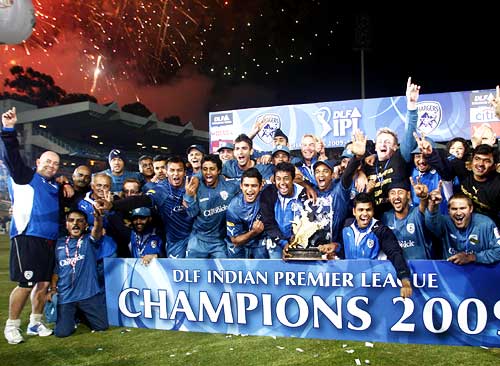Ten Tips on Finding Funding
Despite the current economic downturn that seems to be lasting longer than expected, angel funding and venture capital dollars are still available to companies that can prove they have revenue generating potential, have a strong management team, etc.
Venture capital and angels investing received a lot of attention in the 1990s as new economy entrepreneurs were building "designer" companies that were built to be sold. But throughout business history, real companies have been built from funds found in many places:
1.
Look in your own bank accountAs in the past, entrepreneurs will expect to fund part of their new business from their own wallet. It is the only way to truly get started. It does not matter how much it is, only that it is significant to you. It also enables you to respect other people's money too when you take theirs.
2.
Talk to your friends and familyThis is the all time favorite place for funding of start up businesses. The good news is that they will invest because they love and care about you. The bad news is that it's not a lot of fun to lose their money and may change your relationship with them forever. On a bad business day, you will never be able to truly answer their question "How is the company doing?"
3.
Find a customer that believes in your product and youTraditionally, businesses have started because someone asked someone another person to do something and was willing to pay for it. Find that person who will pay you to solve their problem. You will have an instant client and put you in business.
4.
Talk to your accountant or attorneyThey will be able to give you excellent referrals since they deal with "money" people all of the time. They should be your first referral source. Ask those referrals to give you three more names and so on.
5.
Find a mentorFind someone that will help you spread the word about your business. They should share your passion and vision and be your evangelist to the world.
6.
NetworkAttend seminars, go to events, and talk to anyone that will talk to you. A strong referral is the best way to get in front of the right people. Also, keep these people up to date on your progress even if you do not need resources from them at this time.
7.
Submit your business plan in competitionsThere are many groups that allow you to post your business plan on their website, utilize their website for testing by allowing potential investors to review and give feedback on the plan and/or learn about your company for investment consideration. Sites such as BusinessPartners.com, Angel Investor News, and CloudStart.com allow you to post business plans for investor consideration and to search for firms in your region.
8.
Contact angel groups and other area resourcesThere are several excellent groups that are national and regional. There are an endless number of resources online to help you learn more about attracting capital and funding such as TannedFeet.com, StartUpBiz.com, and BarryMoltz.com (my personal favorite!). A national list of angel groups can be seen at a Kauffman Foundation sponsored website, AngelSummit.org
9.
Achieve business milestonesNothing gets money like business success. Investors want to put their money in businesses that have achieved their targeted milestones and show a promising future.
10.
Attract an excellent management teamInvestors put their money in people not a business. The better team you have, the more money you will be able to attract. Get people on your team that have industry expertise and that have been there before. Investors want track records.
Barry Moltz is an award winning entrepreneur, author and national speaker. He co-founded Prairie Angels, a group of private investors committed to investing in and mentoring early stage companies and their entrepreneurs. His new book is titled "You Need to Be A Little Crazy: The Truth About Starting and Growing Your Business." For more information, please visit Moltz.com.






